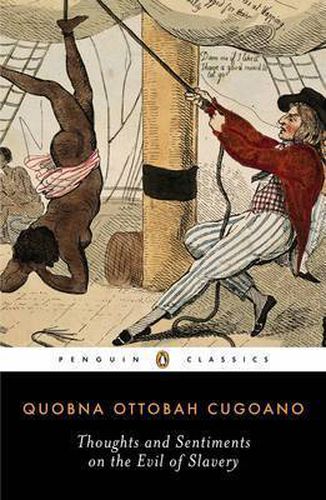Readings Newsletter
Become a Readings Member to make your shopping experience even easier.
Sign in or sign up for free!
You’re not far away from qualifying for FREE standard shipping within Australia
You’ve qualified for FREE standard shipping within Australia
The cart is loading…






Born in present-day Ghana, Quobna Ottobah Cugoano was kidnapped at the age of thirteen and sold into slavery by his fellow Africans in 1770; he worked in the brutal plantation chain gangs of the West Indies before being freed in England. His Thoughts and Sentiments on the Evil of Slavery is the most direct criticism of slavery by a writer of African descent. Cugoano refutes pro-slavery arguments of the day, including slavery’s supposed divine sanction; the belief that Africans gladly sold their own families into slavery; that Africans were especially suited to its rigours; and that West Indian slaves led better lives than European serfs. Exploiting his dual identity as both an African and a British citizen, Cugoano daringly asserted that all those under slavery’s yoke had a moral obligation to rebel, while at the same time he appealed to white England’s better self.
$9.00 standard shipping within Australia
FREE standard shipping within Australia for orders over $100.00
Express & International shipping calculated at checkout
Stock availability can be subject to change without notice. We recommend calling the shop or contacting our online team to check availability of low stock items. Please see our Shopping Online page for more details.
Born in present-day Ghana, Quobna Ottobah Cugoano was kidnapped at the age of thirteen and sold into slavery by his fellow Africans in 1770; he worked in the brutal plantation chain gangs of the West Indies before being freed in England. His Thoughts and Sentiments on the Evil of Slavery is the most direct criticism of slavery by a writer of African descent. Cugoano refutes pro-slavery arguments of the day, including slavery’s supposed divine sanction; the belief that Africans gladly sold their own families into slavery; that Africans were especially suited to its rigours; and that West Indian slaves led better lives than European serfs. Exploiting his dual identity as both an African and a British citizen, Cugoano daringly asserted that all those under slavery’s yoke had a moral obligation to rebel, while at the same time he appealed to white England’s better self.